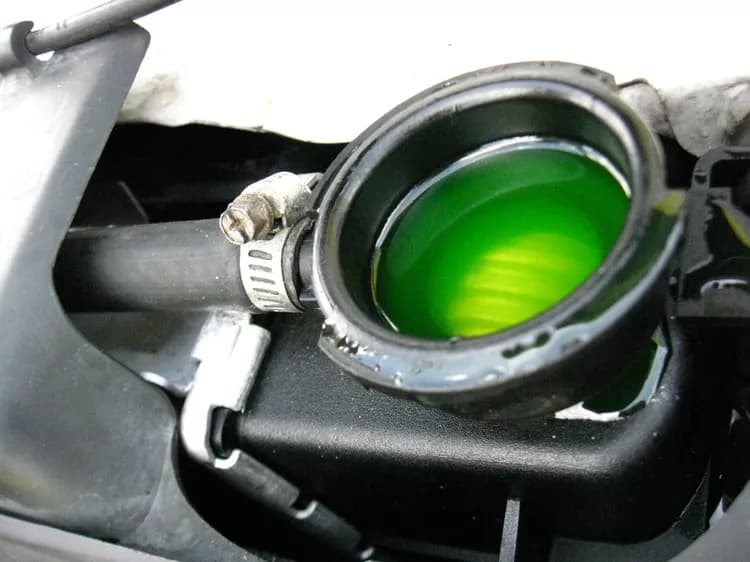What is Methanol Poisoning?
- Methanol Poisoning is the ingestion of a non-drinking type of alcohol (methanol) used for industrial and automotive purposes. It is often due to an accidental intake of any product containing methanol
- The condition is diagnosed based upon the clinical history, combination of signs and symptoms, and additional tests (that may include, in some cases, radiological studies and laboratory tests)
Methanol is found in the following products:
- Antifreeze
- Canned heating sources
- Copy machine fluids
- Deicing fluid
- Fuel additives (octane boosters)
- Paint remover or thinner
- Shellac
- Varnish
- Windshield wiper fluid
What are the Causes of Methanol Poisoning?
Methanol Poisoning occurs when an individual drinks methanol-containing products.
What are the Signs and Symptoms of Methanol Poisoning?
The signs and symptoms of Methanol Poisoning may include the following:
- Airway and lungs
- Breathing difficulty
- Absence of normal breathing
- Eyes
- Blindness
- Dilation of the pupils
- Blurred vision
- Heart and blood
- Low blood pressure
- Nervous system
- Coma
- Dizziness
- Headache
- Seizures
- Skin and nails
- Bluish-colored lips and fingernails
- Stomach and intestines
- Abdominal pain (severe)
- Diarrhea
- Liver function problems
- Nausea
- Pancreatitis
- Vomiting
- Other
- Fatigue
- Leg cramps
- Weakness
How is First Aid administered for Methanol Poisoning?
If you suspect Methanol Poisoning, call National Poison Control Center at 800-222-1222 (or your local emergency number) and provide as much information as you can; even if the person does not have any symptoms.
Call 911 (or your local emergency number) if the person is:
- Unconscious
- Having chest pain or breathing difficulties
- Suffering from drowsiness, seizures, vomiting, or has eye injuries
- Or, if you are unable to obtain any information
Until medical help arrives:
- Remove any poison from the mouth of the person, if he/she has swallowed the poison
- Try to identify the poison, read and follow instructions as mentioned in the container (containing the chemical substance); and call National Poison Control Center at 800-222-1222
- If poison is spilled on clothing, remove the clothing and wash the skin thoroughly with water
- If the individual is not breathing or not showing any signs of movement, immediately start CPR (cardio-pulmonary resuscitation)
- DO NOT induce vomiting (by using ipecac syrup)
- If the individual vomits, turn them on one side to prevent from choking
- Try to locate the poison (or pill) container and take it to the hospital
- DO NOT give anything orally to the person
- Unless directed by the physician, DO NOT give any medication
Who should administer First Aid for Methanol Poisoning?
The person himself/herself or someone nearby may begin to administer First Aid. Call 911 (or your local emergency number) immediately as mentioned before.
What is the Prognosis of Methanol Poisoning?
- Blindness is common and frequently permanent, despite medical care
- The possible recovery depends on how much poison is swallowed and how soon treatment is provided
- Methanol is an extremely poisonous substance. As little as 2 tablespoons may be lethal for a child, and 2-8 ounces (56-225 grams) can be deadly for an adult
How can Methanol Poisoning be Prevented?
A few helpful tips to prevent an inadvertent Methanol Poisoning:
- Keep poisonous/hazardous chemicals, medicines, and other materials out of children’s reach
- Keep all poisons correctly labeled and in suitable storage locations
- Wear appropriate protective wear when working with chemicals/plants, during hiking/trekking, etc.
- Periodically check and ensure smoke detectors at home are functionally fit
What are certain Crucial Steps to be followed?
- Call the National Poison Control Center (1-800-222-1222), or your local emergency number
- Even though, it does NOT need to be an emergency - take the patient to the hospital immediately
The patient may receive the following treatment at the hospital for Methanol Poisoning, while vital signs are being monitored:
- Dialysis
- Medicine (antidote) to reverse the effects of the poison
- Medicines to treat symptoms
- Tube through the nose or mouth into the stomach, to wash out the stomach
- Oxygen and breathing support
- Other medications
Related Articles
Test Your Knowledge
Asked by users
Related Centers
Related Specialties
Related Physicians
Related Procedures
Related Resources
Join DoveHubs
and connect with fellow professionals


0 Comments
Please log in to post a comment.